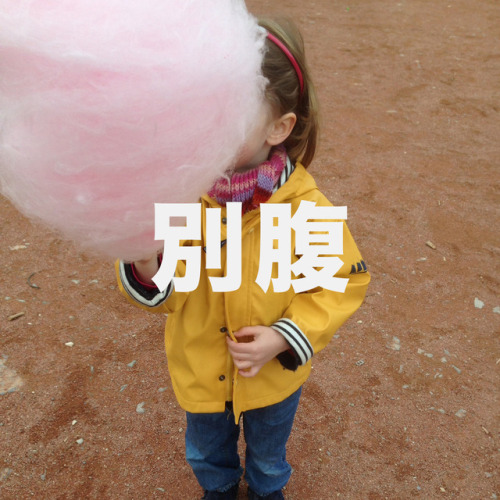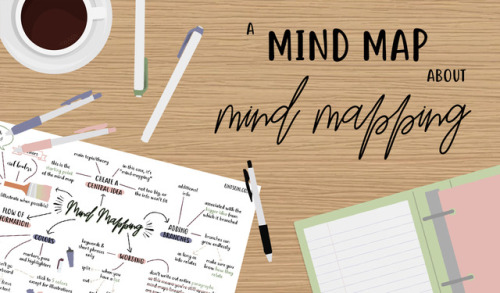かっこいい/かわいい熟語のリスト A List Of Cool/cute Japanese Compound Words

かっこいい/かわいい熟語のリスト A list of cool/cute Japanese compound words
別腹(べつばら)→ (n.) having room for dessert even if one is full (lit. extra stomach)
口寂しい(くちさびしい)→ (n.) the feeling of wanting to put something in one’s mouth (lit. mouth + lonely)
食い違い(くいちがい)→ (n.) diverging or conflicting opinions (lit. eating + different)
食い倒れ(くいだおれ)→ (n.) getting into debt by extravagance in food (lit. eating + bad debt/collapse)
寝酒(ねさけ)→ (n.) night cap ⭐︎☽ (lit. sleep + alcohol)
昼寝(ひるね)→ (n.) siesta, nap (lit. daytime + sleep)
寝坊(ねぼう)→ (n.) late riser, sleepyhead (lit. sleep + someone who~)
朝寝(あさね)→ (n./–suru v.) sleeping late in the morning (lit. morning + sleep)
早起き(はやおき)→ (n.) early riser (lit. early + wake up)
歩き回る(あるきまわる)→ (v.) walking about (lit. walk + turn)
水遊び(みずあそび)→ (n.) splashing about (lit. water + play)
長話(ながはなし)→ (n.) a long talk (lit. talk + long)
話々(はなしばなし)→ (n.) small talk (lit. talk + talk)
昔話(むかしばなし)→ (n.) legends, old tales, reminiscence (lit. olden days + talk)
心強い(こころずよい)→ (–i adj.) reassuring, heartening (lit. heart + strong)
猫好き(ねこずき)→ (n.) cat lover (lit. cat + like)
猫舌(ねこじた)→ (n.) dislike of hot drinks or food (lit. cat + tongue)
積ん読(つんどく)→ (n./–suru v.) buying books and not reading them (lit. pile up/stack + read)
忘れ物(わすれもの)→ (n.) something you left behind, forgot (lit. forgot + thing)
蛇足(だそく)→ (n.) useless addition, redundancy (lit. snake + legs) ˉ̶̡̭̭ ( ´͈ ᗨ `͈ ) ˉ̶̡̭̭
More Posts from Earthquakedeer and Others
Japanese lesson: Arguments
そんなに怒るな!(sonna ni okoruna) Don’t be so mad!
消え失せろ!(kieusero) Fuck off!
勝手にしてよ。(katte ni shite yo) Do what you want.
いったい何不満なのか言えよ。(ittai nani fumanna no ka ie yo) Tell me what the heck is bothering you.
いい加減にしろ。(iikagen ni shiro) Give me a break.
ほっといて!(hottoite) Leave me alone!
これ以上論じたくない。(kore ijou ronjitakunai) I don’t want to argue anymore.
言い過ぎよ。(iisugi yo) You’ve said too much.
🍂 Autumn Vocab List🍂
🍁 Kanji - Kana - Eng 🍁
🍁 秋 - あき - autumn 🍁
🍁 紅葉 - こうよう - autumn colours / leaves changing red 🍁
🍁 秋風 - あきかぜ - autumn breeze / wind 🍁
🍁 秋水 - しゅうすい - clear autumn water 🍁
🍁 秋分 - しゅうぶん - autumnal equinox 🍁
🍁 葉 - は - leaf 🍁
🍁 落ち葉 - おち ば - fallen leaves 🍁
🍁 枯れ葉 - か れ は - dead leaves 🍁
🍁 松かさ - まつ かさ - pinecones 🍁
🍁 焚き火 - た き び - bonfire 🍁
🍁 冷たい - つめ たい - chilly 🍁
🍁 安楽 - あんらく - cosy/comfort 🍁
Extra!!
秋分の日 is Autumn Equinox Day - a public holiday that takes place on the 22nd or 23rd of September!
*I am not a native! please feel free to correct me, or even add on your own words!*



Learning modern languages: Hello! How are you? My name is Josh. I am happy today. Where is the bathroom please?
Learning ancient languages: Life is long and unbearably hard. Each day barbarians slaughter another member of my family. Pirates, sailing swiftly across the wine-dark sea, have kidnapped my sister and stolen our grain. We are starving. Oh immortal gods! Soon we all will die.



A MIND MAP ABOUT MIND-MAPPING
If you know me, you’d know that I am a highly visual person. I love learning from images and layouts, and my spatial intelligence is probably my strongest type of intelligence. Because of this, I often use mind maps to study, and so do a lot of other people. However, there are people who don’t really know how to make and utilize a mind map effectively. That’s what this post is for! Here’s how you can make your mind maps more effective and thus enable you to retain more information. (P.S. you might wanna zoom in)
By no means am I an expert in mind-mapping; these are just some habits I have when making a mind map that successfully does its job of helping me remember the topics I’m studying.
If you have any questions, feel free to drop an ask!
xx jo

365 days of Halloween🎃

03.10.17 // 23/100 days of productivity // handwritten
i’ve decided that alongside my general duolingo/lingodeer/etc app time, i’m going to devote my handwritten studies to the stuff I’d need to pass the JLPT N5. I’ve missed the cutoff for this year, but I figure that gives me ample time to make sure i’m fully prepared for next year! Also, I’ve been woeful in my kanji study, so it’s probably a good idea to start taking it seriously.
it’s also day 3 of @athenastudying ‘s October Study Challenge! I keep forgetting about the time difference and getting confused as to why i’m a day ahead (o>艸<)
ig: @hinodestudies

“Deep End”








GENKI I: LESSON 3 NOTES
whoo. this lesson was long and hard. it took me around 12 hours over 4 days. most of the time was spent in the grammar section trying to understand all the particles that were thrown at you this lesson. nevertheless, i persevered and finished the workbook a few hours ago. this lesson also started giving kanji, which added extra time. i really love using jisho.org to look up kanji meanings and the stroke order. the interface is very nice and i highly recommend it! onward to lesson 4! how was your guys’ week?
genki lesson 3/12 countdown to JLPT N5 exam on dec. 3rd - 77 days
N5 verb list
会う (あう)- to meet
開く (あく)- to become open
開ける (あける)- to open
上げる (あげる)- to give
遊ぶ (あそぶ)- to play, to make a visit
あびる - to bathe, to shower
洗う (あらう)- to wash
ある - to be, to have (inanimate)
歩く (あるく)- to walk
言う (いう)- to say
行く (いく)- to go
居る (いる)- to be, to have (animate)
要る (いる)- to need
入れる (いれる)- to put in
歌う (うたう)- to sing
生まれる (うまれる)- to be born
売る (うる)- to sell
起きる (おきる)- to get up
置く (おく)- to put
教える (おしえる)- to teach, to tell
押す (おす)- to push, to stamp
覚える (おぼえる)- to remember
泳ぐ (およぐ)- to swim
降りる (おりる)- to get off, to descend
終わる (おわる)- to finish
買う (かう)- to buy
返す (かえす)- to return something
帰る (かえる)- to return, to go back
かかる - to take time or money
書く (かく)- to write
かける - to call by phone
貸す (かす)- to lend
借りる (かりる)- to borrow
消える (きえる)- to disappear
聞く (きく)- to hear, to listen, to ask
切る (きる)- to cut
着る (きる)- to put on
曇る (くもる)- to become cloudy/dim
来る (くる)- to come
消す (けす)- to erase, to turn off
答える (こたえる)- to answer
コピーする - to copy
困る (こまる)- to be worried
咲く (さく)- to bloom
差す (さす)- to stretch out, to raise
散歩する (さんぽする)- to stroll
死ね (しね)- to die
閉まる (しまる)- to close, to be closed
閉める (しめる)- to close something
締める (しめる)- to tie
知る (しる)- to know
吸う (すう)- to smoke
住む (すむ)- to live in
する - to do
座る (すわる)- to sit
掃除する (そうじする)- to clean, to sweep
出す (だす)- to put out
立つ (たつ)- to stand
頼む (たのむ)- to ask
食べる (たべる)- to eat
違う (ちがう)- to differ
使う (つかう)- to use
疲れる (つかれる)- to get tired
着く (つく)- to arrive at
作る (つくる)-to make
つける - to turn on
勤める (つとめる)- to work for someone
出かける (でかける)- to go out
できる - to be able to
出る (でる)- to leave, to go out
取る (とる)- to take something
撮る (とる)- to take a photo or film
鳴く (なく)- to chirp, roar, croak etc
無くす (なくす)- to lose something
習う (ならう)- to learn
並ぶ (ならぶ)- to line up, to stand in line
並べる (ならべる)- to line up, to set up
なる - to become
脱ぐ (ぬぐ)- to take off clothes
寝る (ねる)- to sleep, to go to bed
登る (のぼる)- to climb
飲む (のむ)- to drink
乗る (のる)- to ride, to get on
入る (はいる)- to enter, to contain
はく - to wear, to put on trousers
始まる (はじまる)- to begin
走る (はしる)- to run
働く (はたらく)- to work
話す (はなす)- to speak
貼る (はる)- to stick
晴れる (はれる)- to be sunny
引く (ひく)- to pull
弾く (ひく)- to play an instrument
吹く (ふく)- to blow (wind)
降る (ふる)- to fall (rain, snow)
勉強する (べんきょうする)- to study
曲がる (まがる)- to turn, to bend
待つ (まつ)- to wait
磨く (みがく)- to brush teeth, to polish
見せる (みせる)- to show
見る (みる)- to see, to watch, to look
持つ (もつ)- to hold
休む (やすむ)- to rest
やる - to do
行く (ゆく)- to go
呼ぶ (よぶ)- to call out, to invite
読む (よむ)- to read
練習する (れんしゅうする)- to practice
分かる (わかる)- to be understood
忘れる (わすれる)- to forget
渡す (わたす)- to hand over
渡る (わたる)- to go across
-
 iamdollish liked this · 10 months ago
iamdollish liked this · 10 months ago -
 viperofsand reblogged this · 1 year ago
viperofsand reblogged this · 1 year ago -
 xbelovedstar-dustx liked this · 1 year ago
xbelovedstar-dustx liked this · 1 year ago -
 kivvu liked this · 2 years ago
kivvu liked this · 2 years ago -
 luna06k reblogged this · 2 years ago
luna06k reblogged this · 2 years ago -
 luna06k liked this · 2 years ago
luna06k liked this · 2 years ago -
 innya liked this · 2 years ago
innya liked this · 2 years ago -
 the-nihongo-adventure liked this · 2 years ago
the-nihongo-adventure liked this · 2 years ago -
 tourai liked this · 2 years ago
tourai liked this · 2 years ago -
 twentyactsofarson liked this · 3 years ago
twentyactsofarson liked this · 3 years ago -
 seraphixe liked this · 3 years ago
seraphixe liked this · 3 years ago -
 halvatir reblogged this · 3 years ago
halvatir reblogged this · 3 years ago -
 halvatir liked this · 3 years ago
halvatir liked this · 3 years ago -
 i-love-books-because-reasons liked this · 4 years ago
i-love-books-because-reasons liked this · 4 years ago -
 pumpkinphoenix liked this · 4 years ago
pumpkinphoenix liked this · 4 years ago -
 agalaxytigerqueen liked this · 4 years ago
agalaxytigerqueen liked this · 4 years ago -
 honigtraenen reblogged this · 4 years ago
honigtraenen reblogged this · 4 years ago -
 ohjapandy liked this · 4 years ago
ohjapandy liked this · 4 years ago -
 ohjapandy reblogged this · 4 years ago
ohjapandy reblogged this · 4 years ago -
 myradioactivefrog liked this · 4 years ago
myradioactivefrog liked this · 4 years ago -
 koemroseneck liked this · 4 years ago
koemroseneck liked this · 4 years ago -
 0bloodywolf0 liked this · 4 years ago
0bloodywolf0 liked this · 4 years ago -
 scrolling-chan reblogged this · 4 years ago
scrolling-chan reblogged this · 4 years ago -
 scrolling-chan liked this · 4 years ago
scrolling-chan liked this · 4 years ago -
 pumiis reblogged this · 4 years ago
pumiis reblogged this · 4 years ago -
 lonewolfiehd reblogged this · 4 years ago
lonewolfiehd reblogged this · 4 years ago
Just a person learning Japanese. Self-learner. If you're also studying Japanese and want to practice with someone (and you're also very much a beginner) then message me! はじめまして! さびーなです。よとしく!
196 posts